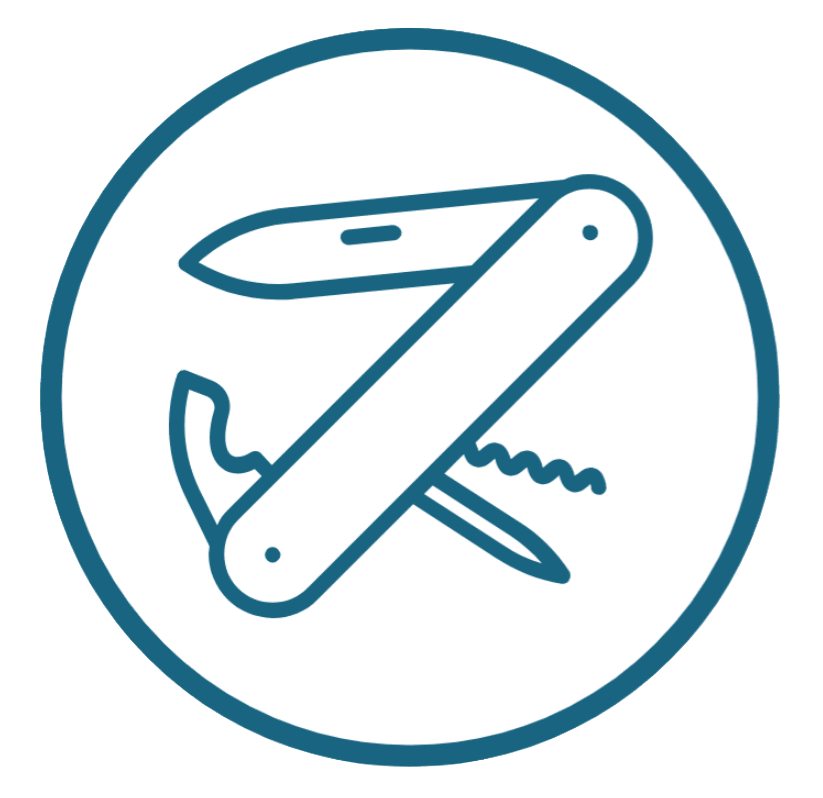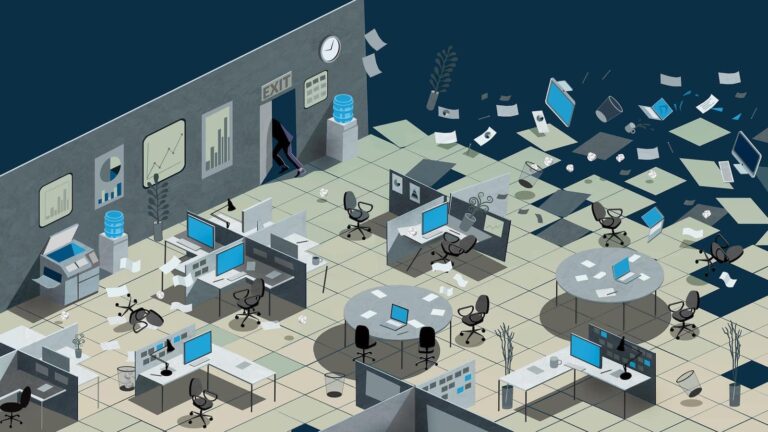No, Don’t Get a Job (If You Don’t Want)
One of the bits of advice I would have given to my younger self is:
You don’t have to get a job.
I say this because I don’t have a job now, and I’m far happier than when I was, and many others don’t have “jobs” and never have had them, and they’re fine too. I and the other people without “jobs” have food on the table, shelter, health, friendships, and freedom.
I say that you don’t have to get a job because “Why don’t you get a job?” is a common refrain, almost an insult, often told to people who are deemed useless. At the same time, it implicitly implies that jobs have value.
For some, to have a job is a luxury. For many others, it’s a goal. I know that stability is what many people crave and even envy in others. I’m not criticising that.
But what I do criticise is the assumption that to have a job – to live in service of someone or something else – is the default thing to aspire for. And I don’t like it how our entire society is structured around this assumption, and that young people look for a degree and a job as if it were the only option. A pathway of degree, job, then “career” is absolutely not the only option.
After experimenting with both, I prefer living without a job. It turns out life is much better this way. No boss, no deadlines, no email (or worse, Slack), no meetings, no meaningless presentations, no people saying things like “moving forward”, “let’s circle back”, or even “Happy Friday!”, and no infernal quarterly business reviews.
Unfortunately, it took me a long time to figure this out. I took the long, difficult road towards finding how I prefer to exist in this world without a job. I suppose many of us end up taking similar paths.
See also: “Breaking free” from a corporate career — why it’s hard, and how to do it.
Maybe we don’t have to do learn lessons the hard way, though! Here are some things to think about if you are young and unfettered enough to make this decision, and if you’re wondering if you should get a job or not.
Why Get a Job?
Growing up in an immigrant family, I was generally counselled that there are three possible careers:
- Doctor. Fine, maybe dentist.
- Lawyer
- Engineer
Everything else is some version of failure. Well, not really “failure”, but “Not as good as your cousins”.
You might have heard something similar. I know there’s a similar sentiment in Asian families (whether in the diaspora or in Asia), in South Asian families, in Middle Eastern families, and many others. It might have a slightly different angle, for example, your family might think “Finance” or “Entrepreneurship” are viable paths, but whatever.
In some families “Get a trade” or “Get some work experience” is what parents tell their kids.
“Engineer” was a strange option for me as a migrant child, because you might think engineers are all rich, if you think of the ones in Silicon Valley. This wasn’t my situation. It was more a steady job that used my brain. I studied engineering, but I seem to have done so in the wrong place at the wrong time (Australia in the early 2000s), where / when there was no big tech industry. My first job was as a generic business analyst with a decidedly low five-figure salary.
Generally speaking, I was told to go to school, get good grades, go to a good university, and get a good job with a solid career path.
The reasoning behind getting an education, job, and career seems sound. It’s a low-risk way to ensure someone will have a roof over their head and food on the table.
By “job” I mean “Go do things for someone else and get money in return”. It’s very difficult to break out of this paradigm (see below on why and how). But once you do, you can realise there are many other ways of surviving everyday life.
But there are a few reasons why a job and career are not the best choices for everyone.
- There’s no such thing as job security. Stability is a chimera.
- Jobs have limited upside, but infinite downside.
- Not everyone is cut out to be an employee.
More on all this below.
Stability is a Chimera
One reason why people pursue jobs with careers is because of a perception of “stability” in a career.
Once you’re in a job, the theory goes, you have a steady paycheck.
Jobs are stable. Unless, of course…
- The company is mismanaged and has to downsize or close, and you lose your job. You then also are tainted because you worked for a company not known as a good one. The same may apply in the public sector, if your department is shut down for being ineffective.
- The economy goes bad and the company has to downsize or close, or your government department is shut down under a new government. What makes this worse is that it happens to a lot of people, and then they’re all competing for the same new jobs.
- The company or government changes direction, and the department you work for is downsized or closed.
- The market changes and your company/department’s products or services fall out of favour, so it has to downsize or close. Your skills might even have fallen out of favour.
- You have a bad relationship with your boss and they fire you.
- You’re no good at your job, or maybe are not set up for success, and they let you go.
- Something happens in your life (e.g. a health crisis in you or a loved one) that means you can no longer perform in your current role or keep following your trajectory, and the company doesn’t support your needs.
- There’s a war, humanitarian crisis, or some other external agent.
All of those things happen all the time. There are more things, too. This is why I say “Stability is a chimera”. It does not exist other than in hindsight.
In fact, I’d say the same for careers. Careers are described retrospectively. Once you’ve snaked your way through thirty years of progression, you can say you’ve had a “career”. Some people follow a very well-defined path — for example, go to dental school — and for them, careers are well-defined. But for most people, it’s almost impossible to plan out more than a few years in advance.
Limited Upside, Infinite Downside
Secondly, one of the big lies of the private sector “career” is the potential of upside. We all like to think that by throwing our hat in the ring, we’re inviting the possibility of everything going our way. If everything goes well — if the company thrives, if it’s managed well, if you’re constantly promoted, there’s no financial crisis, competitors don’t crush it, you’re not ripped apart by the SEC, and seven other things — well, then, you just might make it.
Of course, most of those things don’t happen, and the lion’s share of people churn out of high-potential jobs after just a few years.
If you do stay in your line of work, you might get a cost of living adjustment annually or might get promoted.
If you’re promoted every year, or find a similar position in a competitor, you might be lucky enough to get a 10-20% increase every year. With solid progression, you might double your income every five years.
But that doesn’t happen to everyone. And 10-20% is so little in the scheme of things. At times (not over the long term — but the short term can have a very strong impact on our lives), the stock market or housing market can grow much faster than 10-20%. And at worst, there were times I got raises that were less than the inflation rate.
Yes, if you stick it out, you might make it to CEO of a big company with a multi-million dollar paycheck. But the effort to get there is tremendous, the costs (on your personal life, health, and relationships) massive, and the chance of success incredibly small, due to many factors that might not even be within your control.
In the public sector, upside is more limited. Careers are slower and it pays less (in most countries around the world).
Meanwhile, if you don’t get a job and forge your own path, you also have the same downside (your business might fail), but you have infinite upside.
Businesses grow. If you invest time into them, you’ll get more customers, can open more offices (or store fronts), hire more people, sell more things, and so on. You could grow 50% a year, you could triple your revenue in a year, or you could be one of those rare companies that skyrockets in value. It’s at least possible. With a job, it’s not.
Not Everyone is Cut Out to be an Employee
Lastly, you might just hate being an employee and be terrible at it.
This is me. I absolutely hate being an employee. I hate doing what I’m told, even if it’s me telling myself.
I really did try to be a good employee when I was in a company: To do what I was told, to do things on time, and so on.
But I found myself constantly rebelling. I’m not sure why. I didn’t like to toe the company line. I thought most of what companies do (meetings, catered lunches, useless presentations, etc.) was wasteful. I couldn’t stand the performance review process, whether I was doing well, averagely, or occasionally poorly.
I also hated the many administrative sides of working in a company. I always thought I wanted to be a manager. Then I became one, and it was a nightmare of bureaucracy. Managing people is something I truly do not enjoy. I like leading people — creating cool missions and inspiring people to pursue them, with no direct accountability. But managing them? Ensuring that they do things on time, approving their leave, and writing their performance reviews? Absolutely not.
If you don’t like the idea of having someone set deadlines for you to do a thing you don’t even really want to do — then maybe being an employee isn’t for you. In that case, you might struggle with your “career” as much as I did.
The Difficulty of Breaking Out of the Job / Career Cycle
It’s very hard to break out of the psychology of needing a job, especially once you’ve started down that path. That’s why I’m saying that not everyone needs to start on this path.
It’s particularly hard to break out of the cycle in the US, where if you don’t have a job, you don’t have health insurance (as they have no public health insurance). Paying for your own insurance costs over $600 a month — and that’s for the very most basic insurance you can find. A more normal price would be $2,000-3,000 a month.
But aside from that expense, it’s difficult to break out of the job / career cycle because it’s hard to ignore the noise of everyone else advancing in their careers and go do your own thing. You know that people judge you, because you also might have judged them in the past. “Why did that person get a promotion when I didn’t? How did that other person get this amazing job when they seem less qualified?” And so on. Our competitive work culture can at times be a very negative environment.
See also — what it means to envy other people’s lives and careers, and how to use that envy to understand what you really want.
One of the reasons it’s tempting to go to university and get a job is because in certain circles it seems like everyone is doing it. Doing what everyone else is doing seems like the safest option. Nobody could criticise you for that, surely.
Even once I had finished my arduous degree and found a job, it seemed like my options were only to get a better job or to get an advanced education. Otherwise, I’d be different from all my peers. Gasp!
It took me years to stop caring what my peers were doing. To be honest, I actually never did completely. I have had to actually disable my LinkedIn account to stop looking at it and getting insecure about all my former colleagues now having titles like “VP”, “CEO”, or “Partner”. (Disabling my LinkedIn account was also a relief as it has become more of a social media vanity fair.)
Another difficulty in breaking out of a career cycle is that jobs tend to expose us to other things that everyone seems to do: Have children, and buy houses with mortgages.
Once you have kids and a mortgage, you have several huge dependencies. Suddenly, you need to have money coming in the door, or you’ll be homeless and your kids will be miserable (or dead). You need a much larger nest egg of security.
But if you start out without the assumption that you need to get a job, you might just end up on a path with far fewer economic dependencies, and much more flexibility.
What Else Can You Do Besides “Get a Job”?
So, armed with all that: What are you supposed to do?
Growing up and being told to get an education and have a career, it was difficult to see how I could get money in my bank account otherwise.
That was always the goal: Get money into the account so that I could spend it on shelter, food, and others.
But there are other ways of taking care of yourself other than signing up to show up to a certain location every day and do things.
Here are some examples of people who don’t have a “job” and yet still have food, shelter, and a good life.
- Artists. This can include painters, musicians, writers, and other creators. You can create works, market and sell them.
- Small business owners. You can own a burger joint, a coffee shop, a hair salon, or a convenience store. You can also be like us and own a digital business, managing only online assets like apps and websites.
- Traders. Some people are good at buying stuff and then selling it for more. It might be cars, houses, or whatever.
- Agents. You can be a recruiter or a real estate agent, and then you can work your own hours and do as much or as little work as you want — if you work for yourself, anyway.
- Freelancers / Contractors. If you have a particular skill — like graphic design, coding, or writing — you can sell your services on a project basis.
- Mobsters / Hit men. These guys work on scores or projects, from what I understand from The Sopranos. I kid, but really, watching the way they made “money” was pretty interesting. They definitely did not have jobs.
There are many other examples. These are just the first ones that came to mind.
What I didn’t really understand as a kid — and what I was almost taught to distrust — was that you can get your basic needs met in all kinds of ways that don’t involve showing up to an office, logging on to Slack, and attending meetings.
So have a brainstorm about what else you could do. If you’re unsure, drop me a line and discuss your thoughts. I’m always up for hearing from kindred spirits.








Hello Dana, I’m a 23 year old, and completed my undergrad last year but haven’t made any efforts to get a job because honestly I never want to work. I am not talented or skilled at anything, nor am I passionate about anything. I am not ambitious, i just want to exist peacefully. I have felt like this forever and I would’ve dropped out of even education long ago if I wasn’t forced by my parents to finish it. I feel like a clueless leaf blowing in the wind, no direction, no aspiration. I don’t know what my future looks like, I’m only concerned with my present. I don’t want to depend on my parents forever but is being independent even worth it? I feel like real freedom is not possible. As long as you’re alive you’ll be a slave to something or the other in the world. All i want in life is the free time to do things I like, learn stuff, etc. I hate obligations. But it feels like responsibilities are all you have in life ever since you’re born.
What do I even do with myself?
Hi Emily, it does feel like that. Firstly, in case you’re having any concerns about mental health, I do urge you to avail yourself of local services – get a referral via a GP, call support hotlines, or whatever is in your area. There are people who might be able to help.
But that said, generally, I agree that responsibilities pile up and never end. The good news is you CAN choose your level of burden to a degree. You don’t have to get a mortgage (and not everyone has the privilege to do so). You can be a barista on an ocean liner if you want, or join the military, or opt out of civilian life in a number of ways.
But people closer to you can help more directly. I’m not qualified in that sense – my article was more about avoiding the career/promotions cycle.
I hope you can figure it out!
Dana
This is very much focused on private sector – public sector has much better job security and terms in general.
Oh yes, the public sector is generally better in terms of security (the consistency of paychecks and the relative certainty you’ll be able to keep receiving them).
But still, government departments downsize and shut down with changes of administration, the economy or bureaucratic decisions out of your control. You may get to stick it out for longer on average… but you’ll also get less pay and less upside in the meantime.
There is also loads more bureaucracy in the private sector and generally lower average competence in the staff, both evident as soon as the application process. The public sector does suit some personalities. In most western economies, though, the public sector is not attractive other than in specific niches or high up in the food chain.
But the point of the article is that you shouldn’t feel railroaded into getting a degree and a job — private or public sector.
I appreciate the effort you’ve put into providing context for your article. While the introduction is quite detailed, I found myself eager to dive into the main content. Perhaps consider condensing the opening to help readers quickly access the key points. Your writing style is engaging, and I look forward to seeing how you might balance background information with the core message in future pieces.
Thanks “John” with the fake email! I put your comment through AI to make it more polite and give it some substance.